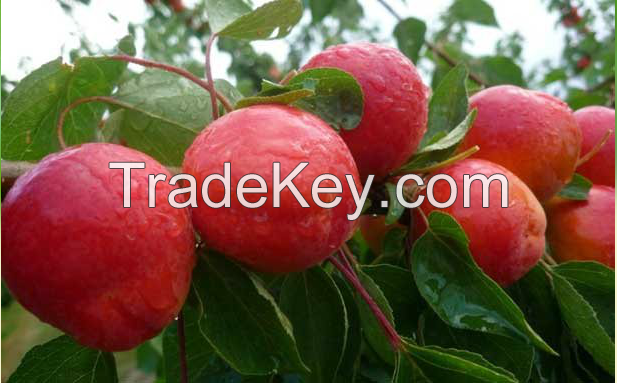
离岸价格
获取最新报价( Negotiable )
|Minimum Order
位置:
-
最小订单价格:
-
最小订单:
10 Pallet
包装细节:
-
交货时间:
-
供应能力:
-
付款方式:
-
Tunisia
联系人 Ms. Wala
Tunis, Tunis Governorate
Apricot (Prunus
Armeniaca) belongs to the Rosaceae family and originates from
Armenia. China knew apricot ***0 years ago in its wild form. Having
traversed India, the fruit took the Silk Road to reach the Greeks
and Romans. Persians called it the Egg of the
Sun.
Production
The Fruits of Carthage is the leader of fresh apricot production in
Tunisia. This is due to our companys high-quality varieties adapted
to our climate. The orchards of the Fruits of Carthage occupy an
area of *0 hectares. The ***1 production is
estimated to reach **0 tons coming mainly from
three regions:
GABES: provides *0% of the
production (Zerkine) picking starts between the end of April and
early May.
ZAGHOUAN:
*0% of the production (Saouef) picking in
May-June.
MATEUR: *0% (sidi Othman) picking in June-July.
Health
Apricot is a very light fruit that has a very moderate caloric intake (*7 Kcal/**0 g). A medium sized fruit provides hence but *0 kcal giving at the same time a pleasant cooling sensation thanks to its slight acidity. It is an excellent source of high quality perfectly palatable fiberas half of them are pectins that have the property to act on obstipation.
Owing to its richness in beta-carotene, which gives it its beautiful orange color, apricot helps ensuring a good night vision. It is an alkalizing, nutrient, energy-providing and refreshing aliment. Apricots are also used in cosmetics: its pulp is an astringent (as a mask, it is said that it tightens and revitalizes pores). Apricots are rich in vitamins B1, B2 and C. Its minerals including phosphorus and magnesium are essential for memory.
Kids love apricots because it is not necessary to peel them.